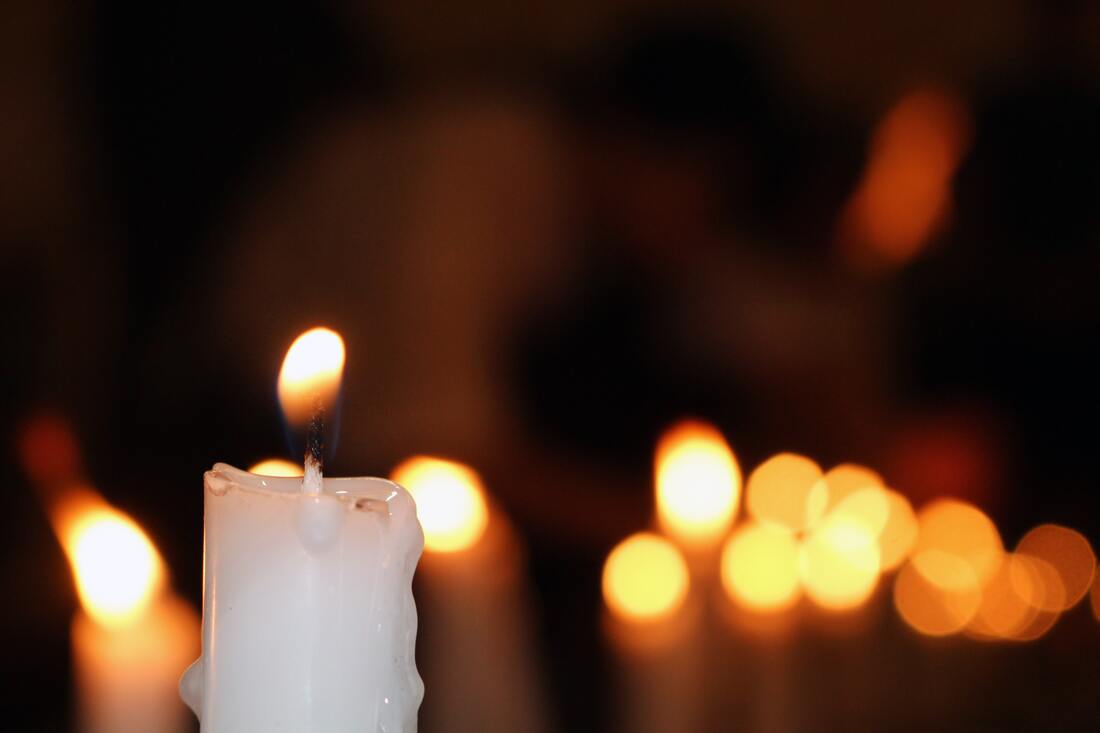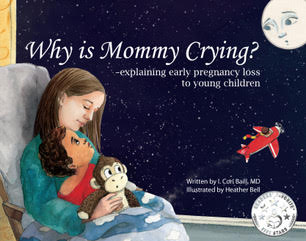|
By Nick Carrington EPLA Editor When grief attacks, it comes for the whole person, plundering their physical, emotional, and spiritual reserves. In miscarriage, a mother’s body needs to heal without the joy of holding their little one. Both parents must fight through the reality that their home is missing someone, a person of infinite value.
This kind of attack makes daily life that much harder, but life rarely slows down. Parents are often required to go to work with limited or no time off. Bills need to be paid, and they must keep their house in order. If loss parents have other children, those little ones still need to get to school or daycare or be cared for at home. Amid grief, these normal parts of life become overwhelming. Healing often comes in community, and one reason why is that we can take the burdens of others upon ourselves. Picking up those little weights allows a grieving person to breathe, if only for a few moments, and reminds them that they are loved. But even in the grief of miscarriage, hurting people don’t want to inconvenience others. They will likely not ask for help, soldiering on to avoid their pain or appear okay. Many well-meaning people have said “let me know how we can help.” Those words usually lead to nothing, the grieving unwilling to ask for something specific. So as a loved one, don’t say that. Instead, offer to do something at a particular time. Tell them you want to cut their grass on a Saturday. Offer to set up a meal train and make one of your own to bring them. Watch their kids so loss parents can catch up on important tasks or simply be together as a grieving couple. It will be much easier for loss parents to say yes to an offer of specific help, and it shows you’ve thought about their needs. Take some of their responsibilities upon yourself, sacrificing your time to help them heal. They may not know they need it, but these little acts of kindness will ease the pressure in their minds and hearts and give them more space to grieve. Nick Carrington is an Editor for the EPLA and Associate Professor of Professional Writing at Cedarville University
1 Comment
By: Maria Servold EPLA Editor Many parents who experience early pregnancy loss have found themselves at adrift when it comes to explaining the miscarriage to any living children they may already have. They may wonder: How do I explain that the baby isn’t going to be born? What if they ask where it went? Will I cause them pain by explaining it? One OB-GYN and mother has written a picture book that gives parents the tools to help explain early loss to children. “Why is Mommy Crying?” by I. Cori Baill, M.D., is a beautiful picture book about a boy named Max who sees his mommy crying and wants to know why. With simple, graceful text and beautiful pictures, Baill and illustrator Heather Bell created a wonderful book that can serve as a resource and jumping-off point for discussing miscarriage with children. Baill spent many years in practice as an OB-GYN and now teaches at the University of Central Florida College of Medicine. After suffering a miscarriage early in her medical career, Baill said she found herself looking for resources to help her explain the loss to the two small children she already had. “I was very surprised at the lack of resources, starting with my religion, which said there was no ceremony, there was no prayer, there was no ritual,” she said. I was really surprised that there was not much out there to help me explain [miscarriage] to my children.” Afterward, she said, she had a “germ of an idea” about a children’s book that could help explain early pregnancy loss. Baill said she watched and waited, certain someone would write and publish such a book. “I had this idea for a children’s book that I thought was really needed,” she said. “I didn’t think I was the right person to write it. I didn’t think I was an expert. I kept my eye out for the book; kept looking for someone to write it.” But no one did. So, eventually, Baill wrote it herself. In addition to helping explain miscarriage itself to children, Baill said she hopes the book can serve as a springboard for discussion among parents and their children. In the back of the book, she provides a list of resources for helping children through grief, for example. The paperback book is available for purchase online, and would make a beautiful addition to any family’s library. We also encourage our readers to consider purchasing it for their local library or pregnancy resource center. Below are several excerpts of my video interview with Dr. Baill. Dr. Baill introduces herself: What prompted you to write this book? Finding and working with illustrator Heather Bell: Why is miscarriage important to discuss? Thank you so much to Dr. Baill for her time, and for writing a beautiful book that will help provide support to families suffering early pregnancy loss.
Maria Servold is an Editor at the EPLA, Assistant Director of the Herbert H. Dow II Program in American Journalism, and Lecturer in Journalism at Hillsdale College. By: Mariah Shull
“I was devastated. I did everything right. I didn't smoke or drink alcohol or caffeine. I took my vitamins faithfully and ate balanced meals. It never occurred to me that I would lose this baby.” Connie Shull was a young wife and mother of a two-year old daughter when she experienced the heart-wrenching grief of a miscarriage. Since she already had a child, she believed that this pregnancy would go just as well until she learned at a routine check-up that her baby didn’t have a heartbeat. “I passed the 3-month mark, so I thought that it would be safe to share with others that I was expecting. I miscarried at about 3 and a half months and had already told family, friends, and folks at church that I was pregnant.” Amidst that internal heartbreak, Connie chose to act composed so that others wouldn’t feel awkward. “It’s an incredibly unpleasant conversation for people who haven’t gone through it. I then became responsible for their emotions. I had to say, ‘Oh, it’s okay…’ even though it wasn’t, just so they wouldn’t feel uncomfortable.” Well-intentioned comments such as, “Oh, you’re young, you’ll have more,” would cause “those raw emotions of loss to come crashing back.” People did not seem to understand the significance of losing a child in the womb. Connie felt numb. Empty. She recalled moving through life in a dark, depression-laden haze for about two weeks before she could move back into her old routine. The combination of postpartum depression with the pain of losing a child caused Connie and her family to spiral into what felt like an “emotional pit.” The loss of a child is enough pain; families shouldn’t have to deal with the social etiquette that miscarriages are something to be kept private and mourned in secret. Connie’s husband was supportive, but he didn’t always know what to do: “I didn’t know how to make her feel better; all I could do was hold her as she cried.” Connie says that “I knew that I was loved and prayed over, but I felt completely empty.” A friend from church, Linda, reached out to Connie, and even though she didn’t feel particularly social, Connie accepted her invitation. Having experienced several miscarriages of her own, Linda knew just what to say and what not to say. “She prayed with me and just listened. That's the thing about loss: you have to walk through those trials to be a comfort to those in need.” It was from that experience that Connie began to heal. “I don't shy away from miscarriages or parents who have lost children now because I know their pain and how to minister to them.” Melissa, lead labor and delivery nurse at a University of Michigan hospital, says mothers often struggle with the thought that their child will be forgotten or replaced. She tries to “meet the parents where they are and acknowledge that their grief is real, that their loss is real, and that their child will not be forgotten.” Though she cannot completely take away their emotional pain, she does her best to give them space and grieve with them. Mothers often need this kind of care. The March of Dimes estimates that as many as half of all pregnancies end in miscarriage, which means that most people likely know someone who has gone through this tragedy. One way we can support one another is by openly talking about and sharing our experiences; just as Linda comforted Connie, we can help each other commemorate the precious life that was lost and move forward. The EPLA seeks to help women and families find support in others who have experienced pregnancy loss and overcome the stigma of quietly “getting over it,” because no family should suffer the pain of miscarriage alone. Mariah Shull is a senior Professional Writing and Information Design major at Cedarville University. She is also active in ROTC. By Emily Graham  Pregnancy loss is one of the most gut-wrenching tragedies that can strike a family. Losing a child due to a miscarriage or stillbirth can be just as devastating as losing an older child, and it’s very common to develop serious depression and anxiety in the subsequent weeks and months.
It’s important to know that it’s okay to feel sad. Don’t let anyone tell you how to grieve. A loss like this - one so personal - is going to take time to fully heal. Having said that, it’s also important that you know that there are ways to help you manage your depression. The Early Pregnancy Loss Association hopes this guide will offer you some hope and support during this unimaginable time. Know when ‘healthy’ grief turns into something worse There’s no set timeline for dealing with a loss of this caliber. Every parent reacts differently, with some pushing through and surfacing in a good emotional place faster than others. Nobody can tell you how you should feel, but you should know that grief of this nature tends to “move,” according to Postpartum Progress. “‘Healthy’ grief moves, but sometimes it can develop into relentless depression that requires more specific treatment. Many moms will experience depression that includes feelings of guilt, shame, self-doubt, and sometimes suicidal ideation. Regaining a sense of self, hope, and trust is important to one’s healing after a loss such as this,” says the blog. If you find yourself “stuck” in a rut of depression for an extended period of time, it may be a signal to seek professional help. Don’t be afraid to reach out and get out There are no rules for this. Nobody says you have to struggle with the pain alone. When dealing with depression, reaching out to friends and family for support can be a great way to start to heal. Try to get out and do things that make you feel happy - even if it’s hard. The loss of a child through miscarriage is not your fault, and there’s no need to punish yourself in solitude. Boost your body and brain for better mental health Depression and anxiety start in the brain, but develop a life of their own after a while and begin to negatively affect every part of your body. If you find yourself suffering from depression, it will help to take the time to take care of your mind and body. For your mind, turn to a practice like meditation, which has been proven to help reduce the effects of stress and anxiety. You can even create a “solitude space” in your home dedicated to meditation so you can get the most benefits from this practice. Make sure the area you choose is away from the everyday hustle-and-bustle of your household, and resist having distractions like electronic devices. Sometimes indulgence is one way to deal with stress and anxiety, but it can have long-term effects if ignored. Are you overeating? Or perhaps even drinking more than usual? Look at what you’re eating and drinking and see where you can make improvements. A poor diet gives your brain and body the wrong type of fuel, and it’s hard to overcome depression when your brain is running on processed foods. Exercise is important too, as it can help you clear your head and release chemicals that trigger your brain’s happy centers. Physical activity has a way of forcing the brain to refocus, and through repeated efforts you are likely to see a noticeable improvement in how you feel. Getting a good night’s sleep is also important and you should for at least 8 hours a night. If you are having trouble sleeping, physical activity should help, but it’s also good to remove distractions from your bedroom like TVs, phones, or tablets. Additionally, a light yoga flow is a great way to prep your mind and body for a good night’s sleep. Turn to other companionship Oftentimes turning to family and friends is not enough, or perhaps they don’t understand how to talk about what you are going through. When battling severe depression, enlist the help of a counselor and spend time with a support group. You do not have to weather this storm alone, and being around people who can help you through your grief will prevent feelings of isolation. Do be gentle with yourself throughout this process. You are not running a race, and there’s no reason to add extra pressure. Time does bring healing, but when you are in the thick of depression, it’s impossible to pinpoint when or how long that will be. In the long run, being good to yourself and taking extra care will make navigating the difficult road of loss more manageable. For more supportive resources, visit the Early Pregnancy Loss Association website. Photo Credit: Pixabay.com |
Archives
December 2023
Categories
All
|




 RSS Feed
RSS Feed